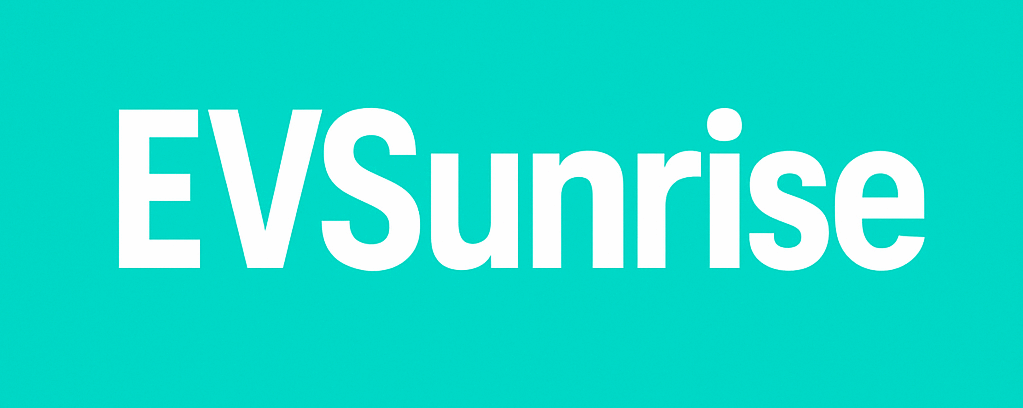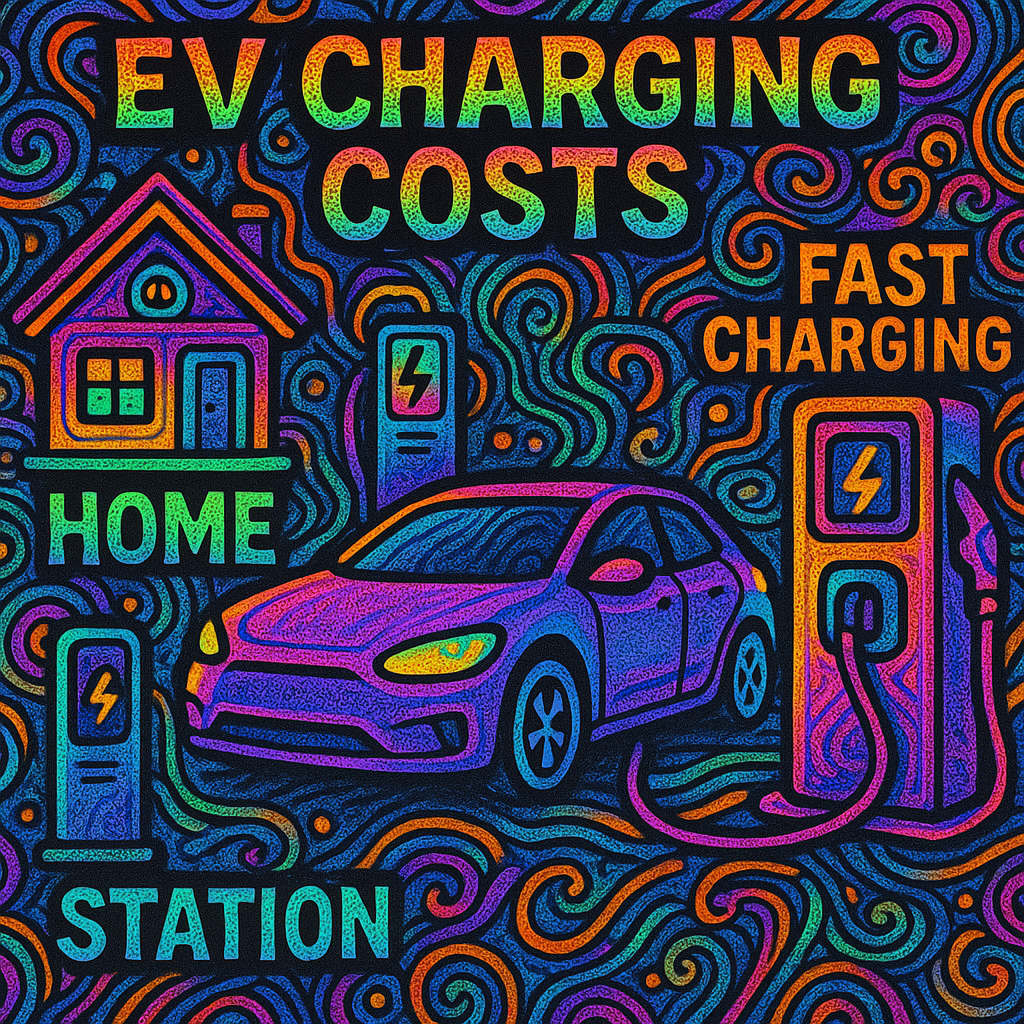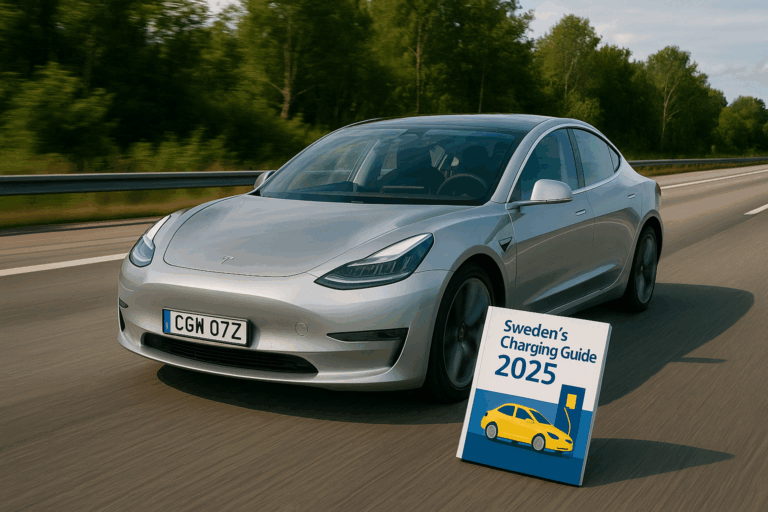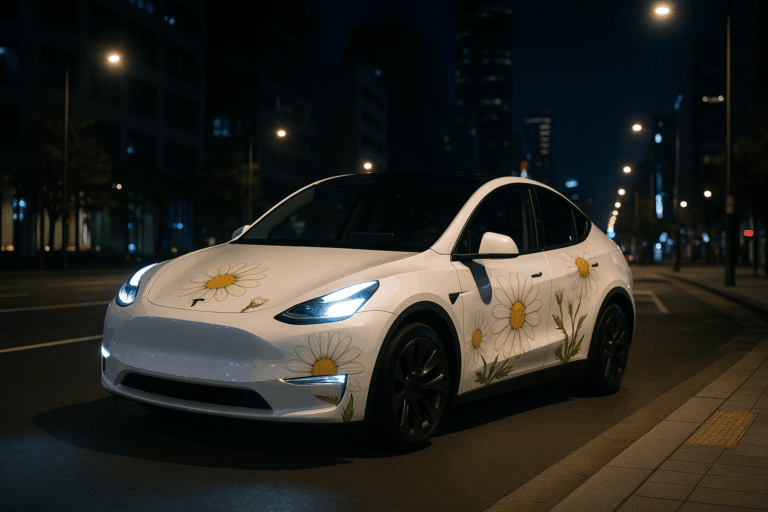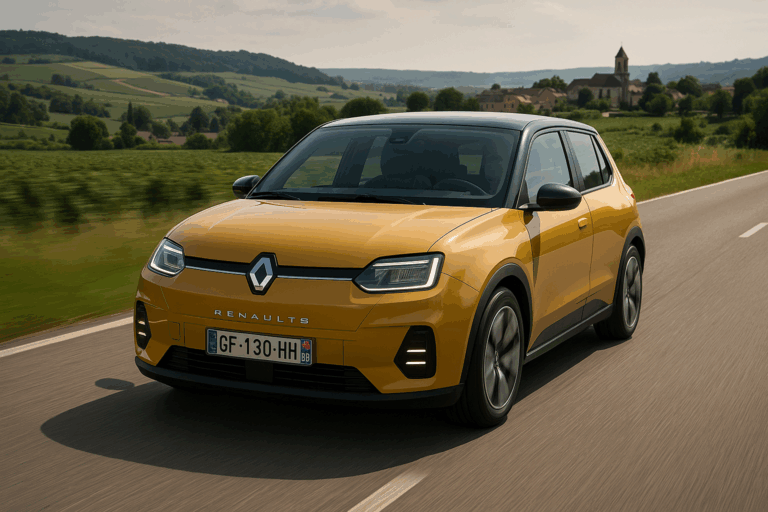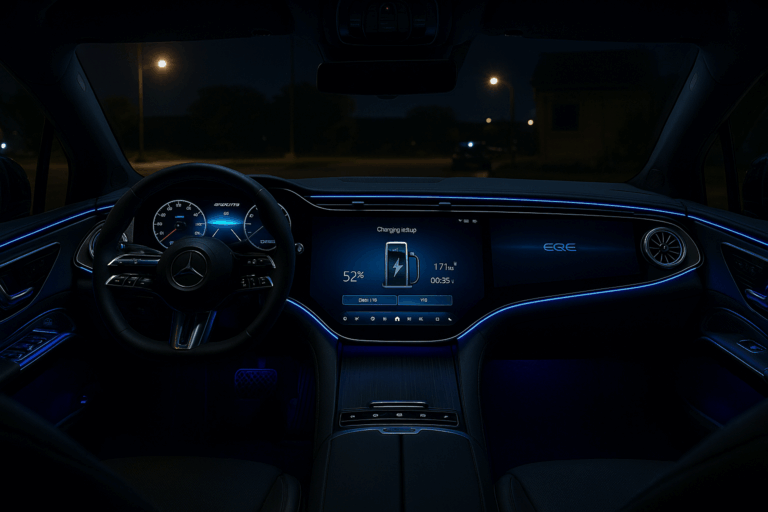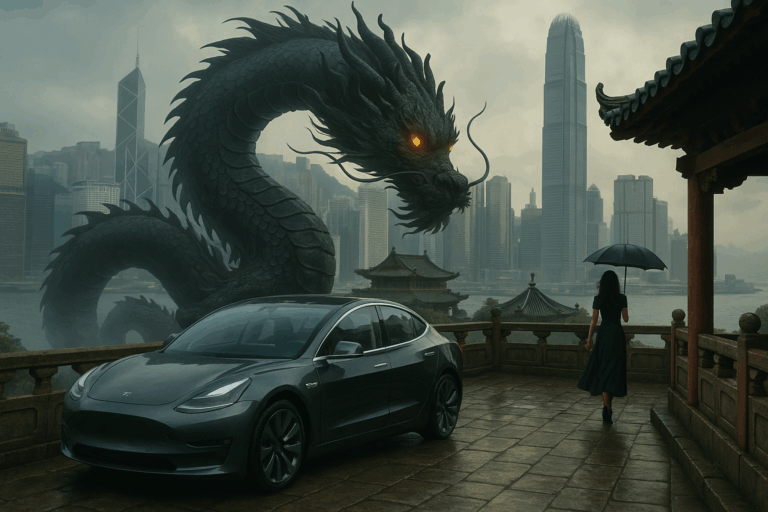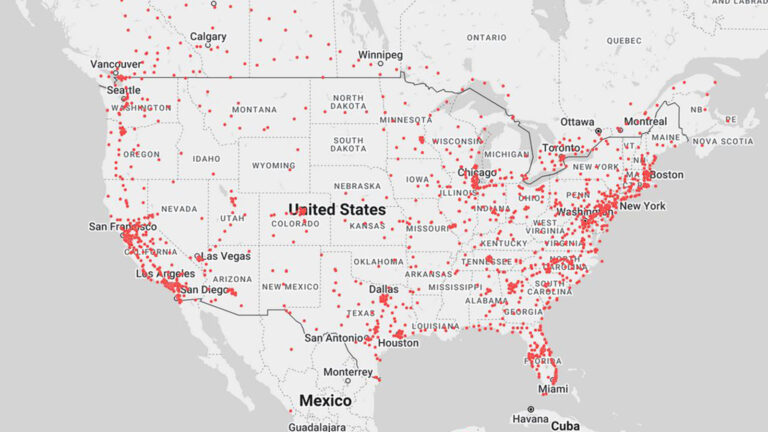How Much Does It Cost to Charge an Electric Car in 2025?
An Electrified Expedition into the Charging Jungle
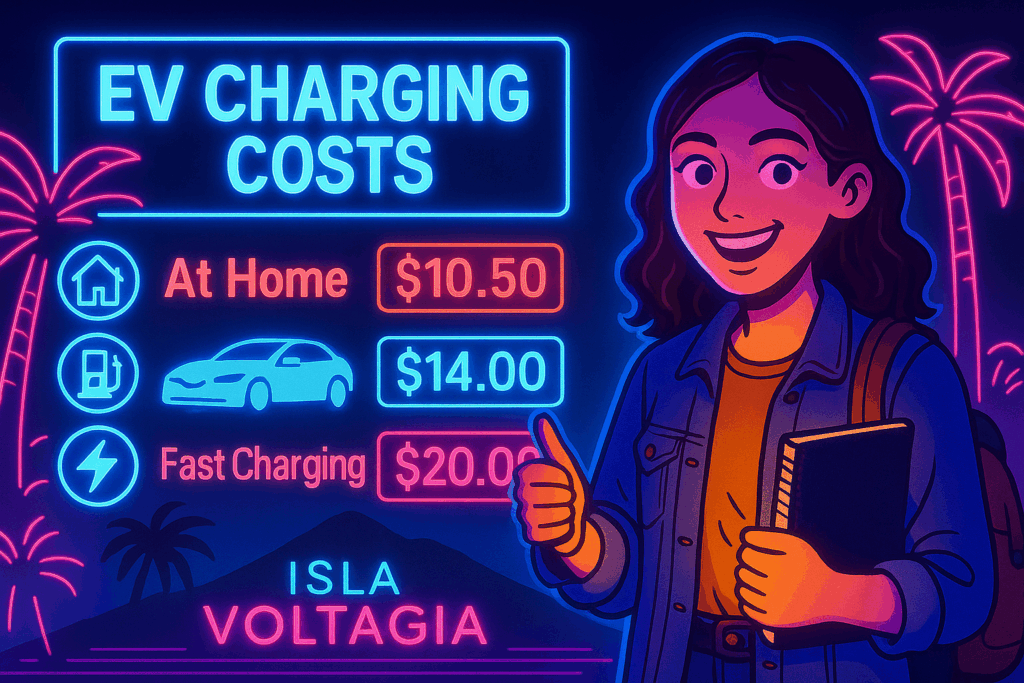
Scene: Isla Voltagia, 2025
You’ve landed in a world unlike any other. Dinosaurs may be extinct, but the remnants of their bones still run the world—in the form of gasoline. But not here. On this island, everything runs on pure electric power. And you? You’re here to find out how much it really costs to charge an electric vehicle in 2025.
Armed with a backpack, a Tesla keycard, and your survival instincts, you trek into the underbrush—right into the heart of the EV charging jungle.
🦖 Chapter 1: The Real Cost of Charging – A Quick Look
Let’s get our bearings before we’re chased by a metaphorical T-Rex.
In 2025, the average cost to fully charge an EV depends on where and how you charge:
| Charging Location | Estimated Cost (USA, 2025) |
|---|---|
| Home charging | $5–$12 (based on electricity rates) |
| Public Level 2 charger | $3–$15 per session |
| DC Fast Charging (EA, EVgo, Tesla, etc.) | $0.25–$0.60 per kWh or $10–$25 per full charge |
But costs vary depending on time of day, charging speed, location, and your vehicle’s battery size.
🏞️ Chapter 2: Electrify America – The Raptor of Fast Charging
You arrive at your first charging station—Electrify America. It’s big, it’s shiny, and it hums like a raptor stalking prey.
In 2025, Electrify America remains one of the most widespread DC fast charging networks in the U.S. Here’s the cost breakdown:
- Price:
- $0.48–$0.58 per kWh (membership reduces it to $0.36–$0.44)
- Idle fee: $0.40/min after 10 minutes post-charging
“EA is like the velociraptor: fast, sleek, and deadly if your battery’s low. I’ve had $18 charges for 200 miles. Not bad, but don’t forget to move your car or they’ll chew up your wallet.”
– Omar, Ford F-150 Lightning owner in Texas
Some drivers love EA’s ultra-fast chargers (up to 350kW), but others warn of glitches, network errors, and random dinosaurs like ‘station offline’ signs.
🛣️ Chapter 3: Tesla Superchargers – The T-Rex of the Jungle
Deep in the heart of Isla Voltagia, you stumble upon the Tesla Supercharger, standing tall like a white-and-red T-Rex. Powerful, dominant, and… surprisingly friendly?
In 2025, Tesla has opened up much of its Supercharger network to non-Tesla EVs using the NACS adapter. But Tesla owners still get the VIP suite.
- Price:
- Tesla users: $0.25–$0.36 per kWh
- Non-Tesla: $0.40–$0.48 per kWh
- Idle fee: $0.50–$1.00/min if you’re fully charged
“It’s like finding a clean, air-conditioned dinosaur nest. You pull in, charge fast, and you’re gone in 20 minutes. $12 for 250 miles? I’ll take it.”
– Amber, Tesla Model Y driver in Oregon
“I pay a little more with my Rivian, but the chargers always work. That alone is worth the price.”
– Mike, Rivian R1T driver in Colorado
🦕 Chapter 4: ChargePoint – The Triceratops of Charging
You round a corner and see the sturdy, reliable form of ChargePoint. It’s not flashy. But it’s everywhere—like the herbivore of the charging world.
Mostly offering Level 2 chargers, ChargePoint is ideal for urban explorers and university students.
- Price: Varies by host site, usually:
- $1–$2/hour
- Some are free (especially in workplace lots or public libraries)
“At my college, I charge for free while I’m in class. That’s like getting free hay every day. Bless.”
– Lena, Chevy Bolt driver and biology student in Ohio
“It’s slow, but perfect when I’m parked for hours. I just leave it, go shopping, come back—50 extra miles.”
– Jordan, Nissan Leaf owner in L.A.
🦎 Chapter 5: EVgo – The Agile Compy in the Pack
Next stop? EVgo, a mid-sized predator in the charging ecosystem. Not as big as Tesla or EA, but nimble—and often in downtown jungles.
In 2025, EVgo has stepped up its fast charging game and partnered with major automakers to expand reach.
- Price:
- $0.43–$0.55 per kWh (members get lower rates)
- Idle fee: $0.35/min
- Subscription plan available ($6.99/month for discounted rates)
“I use EVgo all over Chicago. $10–$14 for a solid charge. Just wish more spots were working at once.”
– Carlos, Hyundai Ioniq 6 driver
“Better than it used to be, but I once waited 40 minutes behind two Uber drivers hogging chargers. Bring snacks.”
– Samantha, VW ID.4 driver
💡 Chapter 6: Home Charging – The Safe Cave of the Modern EV Hunter
You escape the charging jungle and return to your home cave. Inside? A Level 2 wall charger humming gently. This is where EV warriors get their full rest.
Charging at home is by far the cheapest and most convenient—if you have access.
- National average electricity cost (2025): ~$0.15 per kWh
- Cost to fully charge a 60 kWh battery: ~$9
- Cost per mile: Around $0.03–$0.05, depending on rates and efficiency
“My solar panels + home charger = free miles. I haven’t paid for ‘fuel’ in 2 years.”
– Nova, Tesla Model 3 owner and self-proclaimed ‘solar queen’
“Even without solar, it’s way cheaper than gas. I spend maybe $40/month max, and I drive every day.”
– Ben, Kia EV6 driver in Atlanta
Downside? Renters and city dwellers may not have access to home charging. That’s where the jungle gets real again.
🦴 Chapter 7: Hidden Costs – Watch for the Fossil Traps
The charging world has its ambush predators too. Beware of:
- Idle fees: Stay too long? Get charged extra, even if your battery’s full.
- Time-based pricing: Some Level 2 stations charge by the minute, not energy, which can overcharge slower EVs.
- Roaming fees: Some stations add a premium if you’re not using their app/membership.
- Peak pricing: Just like Uber surge—some charge more during high-demand hours.
“I got charged $7 in idle fees once because I fell asleep in the car. Learned my lesson.”
– Joey, Polestar 2 driver in Nevada
🧬 Final Chapter: Evolution Is Happening—Fast
Here on Isla Voltagia, you’ve learned to survive in the EV charging jungle. But outside? The world is evolving.
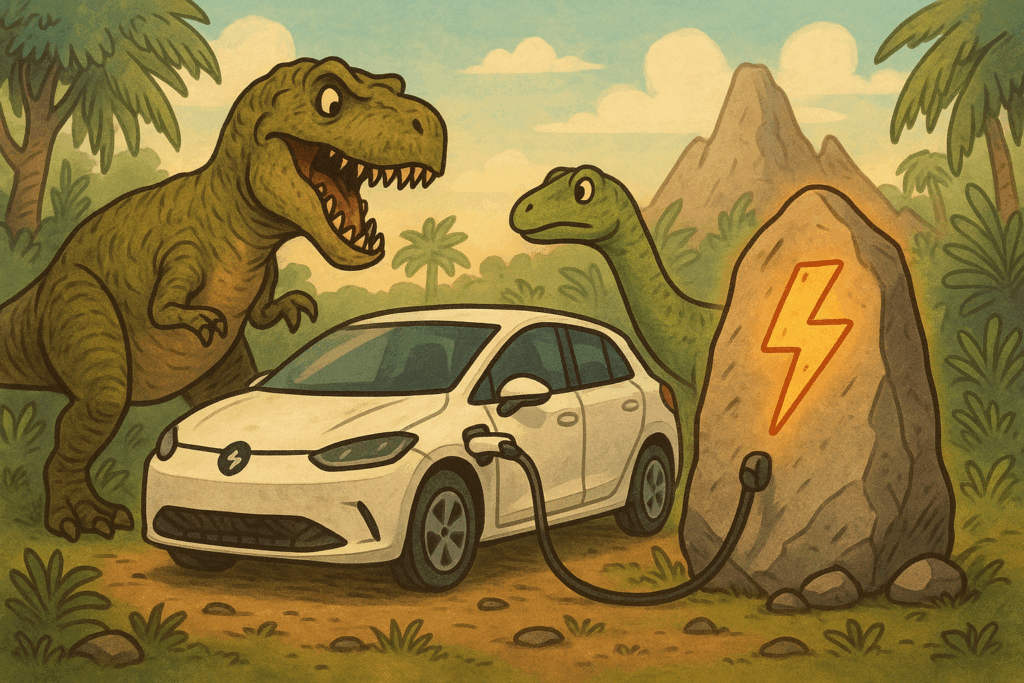
- The U.S. federal government is funding 500,000+ chargers by 2030.
- Battery ranges are increasing, so we charge less often.
- Smart charging and plug-and-charge tech is simplifying everything.
Gas stations may have been T-Rex kings for a century, but their reign is ending. Electricity is the new apex predator—and it’s cleaner, quieter, and way smarter.
⚡ Final Word: Know Before You Roam
Charging an electric car in 2025 doesn’t have to be chaotic. Once you understand the networks, the pricing models, and a few survival tactics, you’re golden. Here’s the TL;DR:
| Network | Avg. Cost (2025) | Best For |
|---|---|---|
| Electrify America | $10–$20/session | Fast highway charging |
| Tesla Superchargers | $8–$18/session | Reliable, fast, wide coverage |
| ChargePoint | $0–$10/session | Urban errands, slow top-ups |
| EVgo | $10–$16/session | City charging, daily routines |
| Home Charging | $5–$12/session | Daily use, overnight charging |
So next time someone asks you, “How much does it really cost to charge an EV?” you’ll smirk, push your glasses up like Dr. Malcolm, and say:
“Depends which jungle you’re in.”
